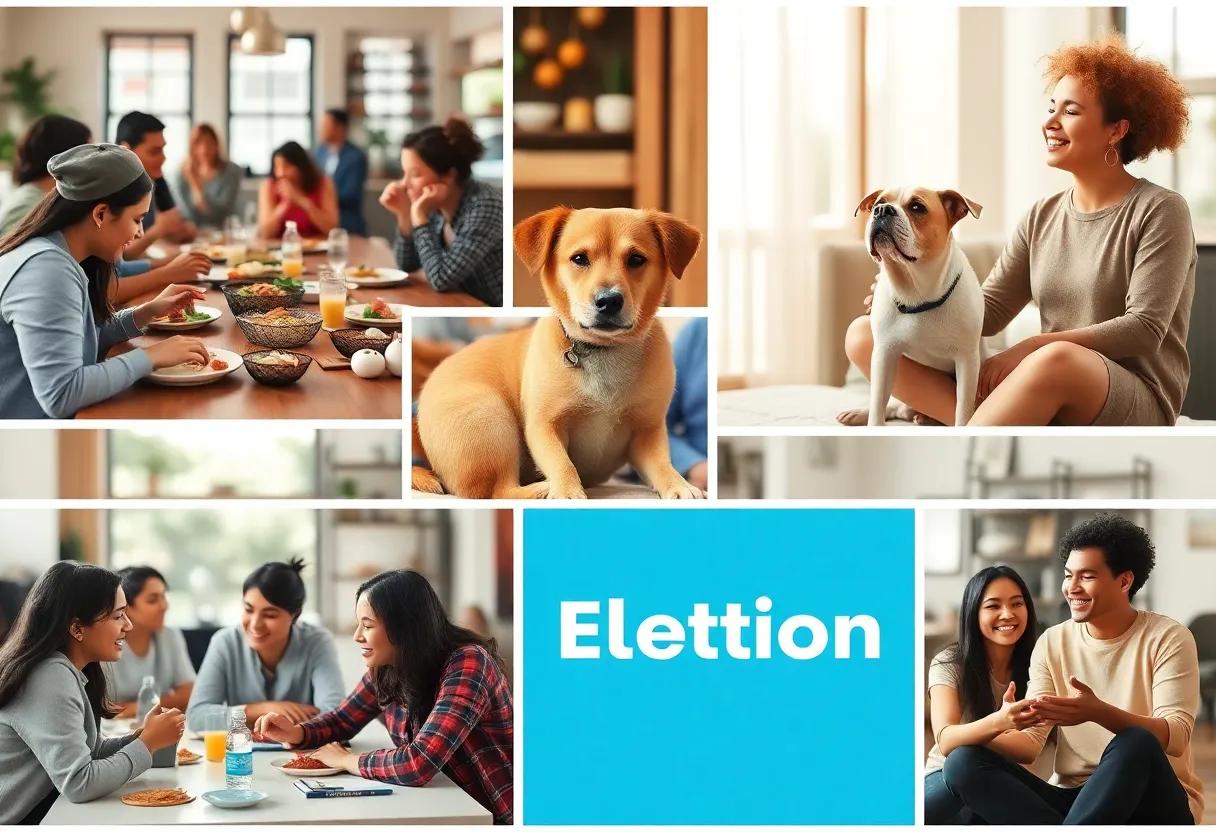

Brands are finding ways to connect with consumers through humor and community engagement, even amidst a charged political climate.
Article Sponsored by:
Real Internet Sales is a digital marketing agency located in Columbia, South Carolina. We specialize in website design and development, SEO, social media management, online advertising, AI integration, and workflow automation. Our services also include affiliate marketing and digital strategy.
Real Internet Sales also offer specialized programming for real estate firms, using IDX and RETS feeds to automatically populate MLS properties on their websites for improved property listings and sales. We also work with clients in the restaurant, tourism, and e-commerce industries to enhance their digital presence and streamline operations.
As the election season heats up, brands across the nation are navigating a tricky path. With emotions running high and tensions palpable in the air, companies are finding it increasingly important to connect with consumers on an emotional level without risking backlash.
In recent months, consumer sentiments have taken center stage. A survey from GWI revealed that about 22% of U.S. consumers stopped using a product due to the political opinions of a brand, indicating just how sensitive shoppers have become to political statements made by brands. For those active on social media, the stakes are even higher, with 18% opting to unfollow brands or influencers because of their political stance.
With such notable percentages, it’s no surprise that a significant 82% of marketers feel anxious about how to communicate effectively during this political climate, according to research from Forrester. This anxiety is further amplified in 2023’s charged political environment. Americans have shown they want a break from the political noise; about one-third of them are avoiding political content online due to feelings of being overwhelmed or negatively impacted.
In this climate, some brands have decided to take a different route by encouraging customers to seek comfort rather than conflict. For instance, Stonyfield, known for its organic yogurt, has launched an initiative called the Toxic Free Election Challenge. The idea is simple yet effective: encouraging individuals to log off social media in the lead-up to Election Day for a chance to win $1,000. Kristina Drociak, the director of public relations there, explained that this campaign aims to help consumers avoid digital toxicity while promoting their mission to help people steer clear of harmful products.
Stonyfield’s effort seems to be paying off. In just two weeks, the challenge drew in 2.1 million participants ready to tune out social media. As brands strive to establish an emotional rapport with consumers, many are successfully bypassing contentious political topics.
A notable example is Red Lobster, which is serving up a lighthearted campaign named “Cheddar Bay 2024”. This playful promotion encourages people to gather over a meal, no matter their political background. The seafood chain even mocks typical political commercials, shining a spotlight on the unifying joy of sharing a meal. Their message underscores a shared love for “cheesiness, freshness, and warm, buttery goodness.”
But it’s not only dining that’s being tackled with a dose of humor. The hotel brand Aloft has taken a unique spin to ease pre-election jitters by unleashing the calming power of dogs. Their new video features canines leading a meditation session aimed at helping viewers ease their stress levels during this tumultuous period. Moreover, Aloft is also hosting “Not Watch Pawties” on Election Day itself to let guests and locals spend time with shelter dogs in a friendly, comforting environment.
As brands carve their paths amid these heated discussions, they face the potential risk of being perceived negatively by consumers who hold different views. The aforementioned research highlights a growing divide among Americans regarding brands taking political stances: about 30% of millennials and 27% of Gen Z favor brands aligning with their values, while only 9% of baby boomers are on board. Compounding this issue is the fact that Republicans express the strongest aversion to political brand positioning at 55%.
In light of these challenges, marketers are wise to tread carefully and engage in reassessing their messaging strategies. With the potential for consumers to disengage due to poorly received political posts, it’s clearer than ever that being in tune with the audience’s mindset is crucial before making any political stand.
This election season isn’t simply a time to retreat from brand messaging — it presents an opportunity for brands to connect emotionally and bolster their loyalties amid anxieties prevalent in consumers today. Instead of viewing the political landscape as a barrier, brands can capitalize on the spirit of connection and reassurance, positioning themselves as allies to customers seeking solace amid the chaos.
As we head into November, brands are quietly honing their messages in a way that resonates with consumers. Juggling political sentiments while fostering positive connections will be paramount. How brands choose to approach this election cycle could very well define their place in their customers’ lives, both today and in the future.

7001 St Andrews Rd #329 ,
Columbia, SC 29212,
United States
Phone: (+1) 803 708 5514
News Summary In a notable legislative move, South Carolina lawmakers have introduced bills aimed at…
News Summary Raleigh, North Carolina has been recognized as the best-performing large city in the…
News Summary Sustain SC warns that South Carolina could face an economic loss of up…
News Summary The Empire Wind project, set to provide clean energy for 500,000 homes off…
News Summary The Trump administration has initiated a lawsuit against Maine for not banning transgender…
News Summary Dr. Kevin Hall, after 21 years at the National Institutes of Health, has…